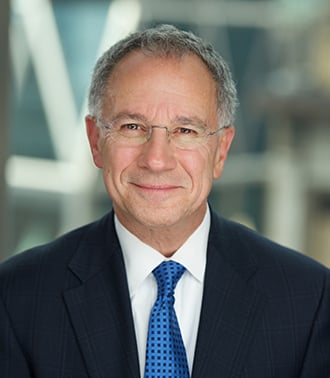New Series Alert: Tracking Judge Garland's Confirmation Hearing (and What It May Mean for You)
The Arnold & Porter White Collar Defense & Investigations practice group, along with other colleagues across the firm, will be closely monitoring the confirmation hearings for President Biden's attorney general nominee, Judge Merrick Garland, currently scheduled for February 22 and 23, 2021. These hearings will provide a window into Judge Garland's views on a variety of policies and priorities that he will face as the new attorney general. They will also likely indicate how the Senate Judiciary Committee will oversee the Biden DOJ and which issues individual members will try to keep on the front burner. To provide up-to-date insight and analysis, we'll be publishing a series of blog posts highlighting what the hearings portend for DOJ's refocusing or outright changing its approach to enforcement issues in the US and around the world.
Here are some things we'll be looking for:
Will Senator Chuck Grassley try to ensure a commitment for a more muscular use of the False Claims Act (FCA)? Will he ask Judge Garland about his dissent in U.S. ex rel. Totten v. Bombardier Corp., expressing a broad view of FCA liability? And will Judge Garland offer any views on the "Granston memorandum" and the Department's ability to seek dismissal of qui tam actions in which it has declined to intervene?
In the wake of the Capitol insurrection and the plot against Michigan Governor Gretchen Whitmer, there is considerable pressure for Congress to pass a domestic terrorism statute similar to the laws that apply to foreign terrorism. Will Judge Garland—whose DOJ service included supervising the Oklahoma City, Unabomber and Atlanta Olympics bombing cases—express a view about that kind of legislation? And will he announce that he will reestablish the Domestic Terrorism Executive Committee that Attorney General Janet Reno established in 1995 and Attorney General Eric Holder revived in 2014? Or does he have another structure in mind?
Will Senators use Judge Garland's background in antitrust—including as a former antitrust lawyer at Arnold & Porter—to ask him about his views on big tech? What will he say about the appropriate role for DOJ? And will he comment on allegations by whistleblowers and members of the House that the Trump DOJ misused the antitrust laws to target "blue state" initiatives, such as pretextual reviews of mergers in the cannabis industry?
In the wake of the murder of George Floyd, the Department's role in police reform and criminal justice reform has jumped to the top of the agenda. There is little doubt that Senator Cory Booker will ask Judge Garland about his views on criminal justice reform. And President Biden has promised to improve the justice system in a variety of ways, including "root[ing] out the racial, gender, and income-based disparities," and providing "social service[s]" instead of police presence responses to those in crisis. Will Judge Garland use the hearings to announce a return to the use of federal pattern-and-practice investigations as a major DOJ tool for police reform? What will he say about the proper role of the Department in improving policy-community relations? And will Judge Garland express his views on mandatory minimums or the sentencing guidelines?
Among the reasons that President Biden chose Judge Garland for this role is his impeccable reputation for integrity and his distance from politics after almost 24 years on the bench. That makes Judge Garland much more of an "independent counsel" than most of his predecessors. Will that be enough for the Senators? Who will press him for a commitment to go outside the Department for certain high-profile investigations? And what will Judge Garland say about the existing Special Counsel regulations?
There is a role for presidentially appointed US Attorneys, and for the AG, in the review of ongoing investigations and prosecutions. But there also has been substantial criticism of how those in the Trump Administration exercised that authority. How will Judge Garland describe his responsibility in those matters? And we know that he will commit to complete distance from the White House on criminal matters. But how will he navigate the relationship on matters of policy and other areas?
Of course, this is not an exhaustive list, and we expect that we've barely scratched the surface of the wide range of issues that senators will raise in two days of testimony. We'll be watching and reporting.
Watch this space!
© Arnold & Porter Kaye Scholer LLP 2021 All Rights Reserved. This blog post is intended to be a general summary of the law and does not constitute legal advice. You should consult with counsel to determine applicable legal requirements in a specific fact situation.





